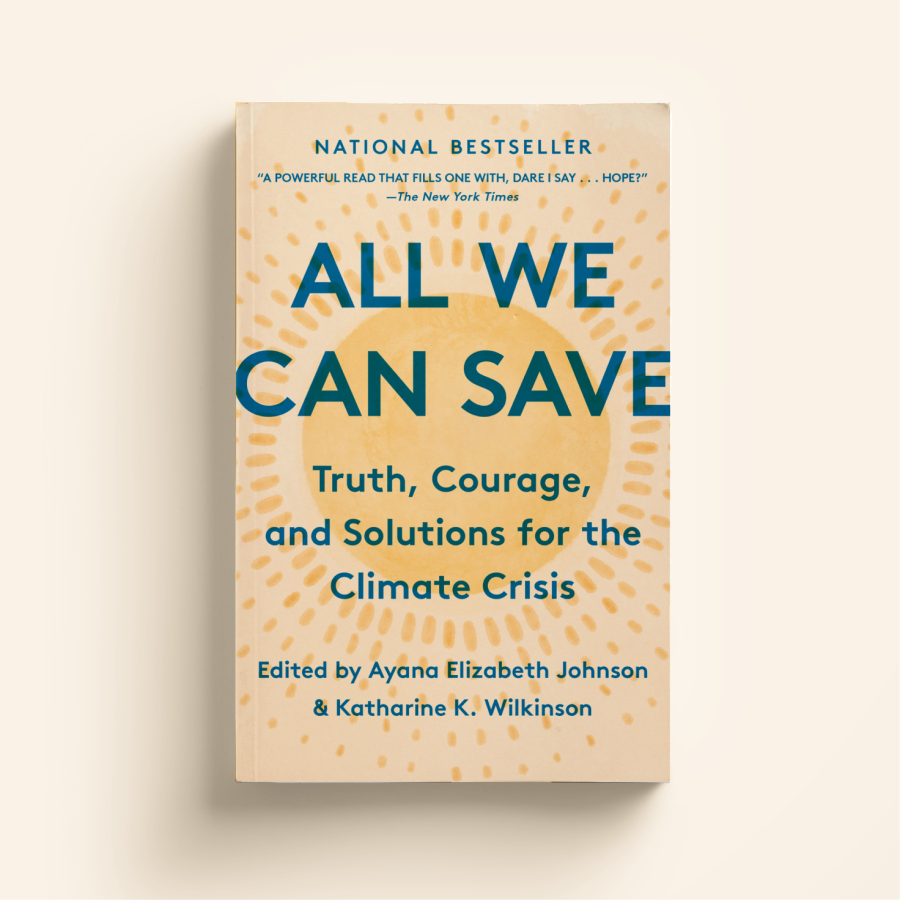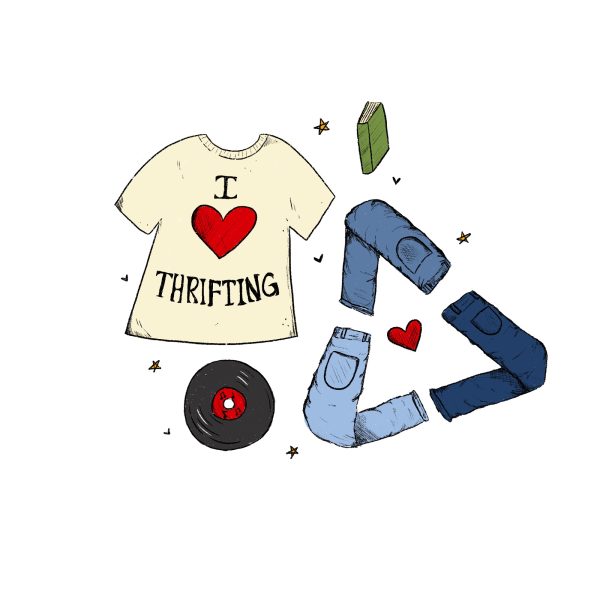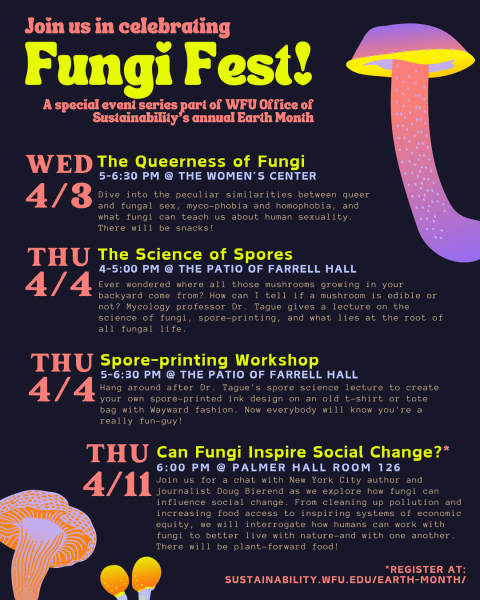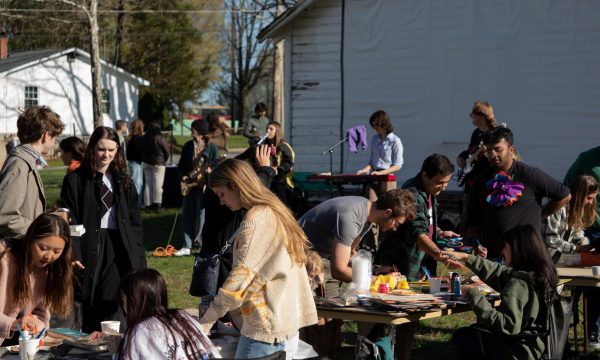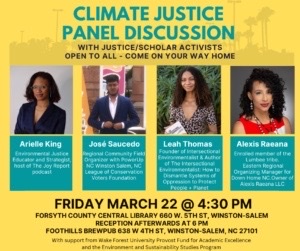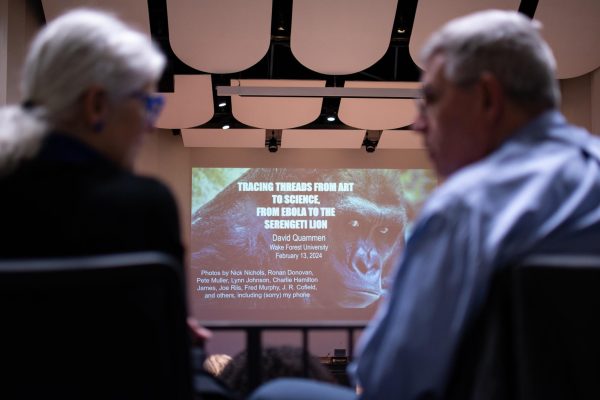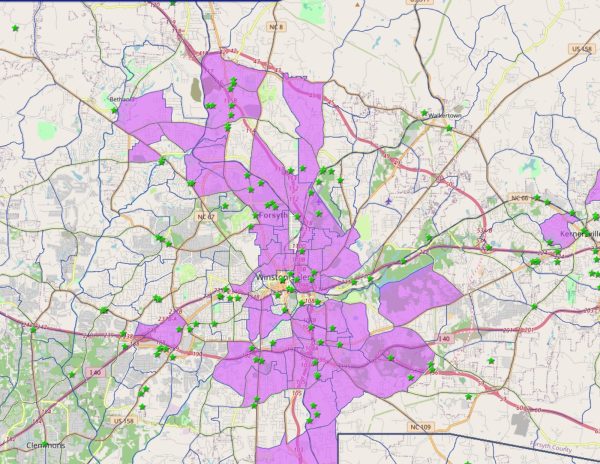Graduate cohort focuses on eco-justice
The cohort works with local environmental justice organizers and discusses the book All We Can Save
October 31, 2022
Environmental justice is an issue that hits close to home for Wake Forest– so close that it affects the surrounding Winston-Salem community more than many students may know.
That’s why Wake Forest’s graduate program has formed a graduate cohort that asks the question: “How can we live good, rich lives – personally and professionally – in the face of the climate crisis and its attendant environmental injustices?”
To answer, they turn to a popular feminist anthology, All We Can Save.
The Wake Forest graduate cohort takes the time to have engaged discussions about the emotions that the book, All We can Save, sparks. They interviewed Wake Forest Power Up regional organizer Robert Leak, who is well-versed in the environmental injustice in Winston-Salem since he has experienced it first hand.
For the next two months, the graduate cohort will discuss the climate crisis as a whole. Their conversations will serve as a safe space for growth surrounding the topic of eco-justice and climate change.
“When discussing the climate crisis, you are either more optimistic or pessimistic,” Lucy Shuman, a student in the cohort, said.
Instead of presenting an overly dramatic viewpoint, the leaders of the cohort aim to present the group with facts, and let them decide how to feel and then take action.
For example, one initiative discussed was the decades of chemicals being pumped into the atmosphere from factories and transportation in Winston-Salem, such as the Douglas Battery plant. A statewide environmental organization has stepped up and made an effort to address this detrimental problem.
The organization Power Up goes around the Winston-Salem communities and has conversations with the residents where they can express any environmental concerns they have, chief among which are wasting gas through excess speeding, pollution from manufacturing, and litter. These problems tend to affect marginalized communities the most.
“Black and brown communities are marginalized in these conditions that they are not aware of, they are just trying to make a living for their families and the stories are still untold,” Leak said.
The zip codes within which Leak works are 27108 and 27107, a short drive from campus. Leak grew up in 27107. These neighborhoods were built around the 1930s to be workplace neighborhoods, where blue-collar workers could walk to work in big manufacturing facilities, and then return home safely to their families.
What they didn’t know was that every day their kids ran around in the yard, they were inhaling thousands of toxic air pollutants the companies were emitting. Volatile organic compounds and solid particulate matter are two of these significant pollutants contributing to the climate crisis.
Leak’s grandparents grew up in one of these neighborhoods. Years later, when he went to middle school, cases of asthma in his grade skyrocketed, and at the age of 20, he was diagnosed with asthma. His grandparents were sick with lung cancer, and only one source to blame: the detrimental polluting companies conveniently placed just outside his front doors.
According to Princeton Student Climate Initiative, “African Americans are 75% more likely than White people to live in ‘fence-line’ communities.”
These are communities near facilities that make excess pollution emissions, noise, and odor.
Worldwide, there are those having to live next to heavily polluting manufacturing companies, and while their kids play catch in the yard, they have to breathe in thousands of pollutants, forcing them to develop asthma, or worse, lung cancer.
Princeton Student Climate Initiative states, “More than half of the people who live close to hazardous waste are people of color.”
People of color are victims of environmental injustices and marginalized communities are unfairly exposed to hazardous land use.
Leak and the Power Up organization partnered up with a nearby school, Ashley Academy Elementary School, and started a school garden. The children then go home, cook healthy meals with their families, and discuss the importance of learning where fresh food comes from.
For the Wake Forest community, there are steps that can be taken. Leak said that it is possible for students to volunteer at the Ashely Academy school garden with Power Up.


